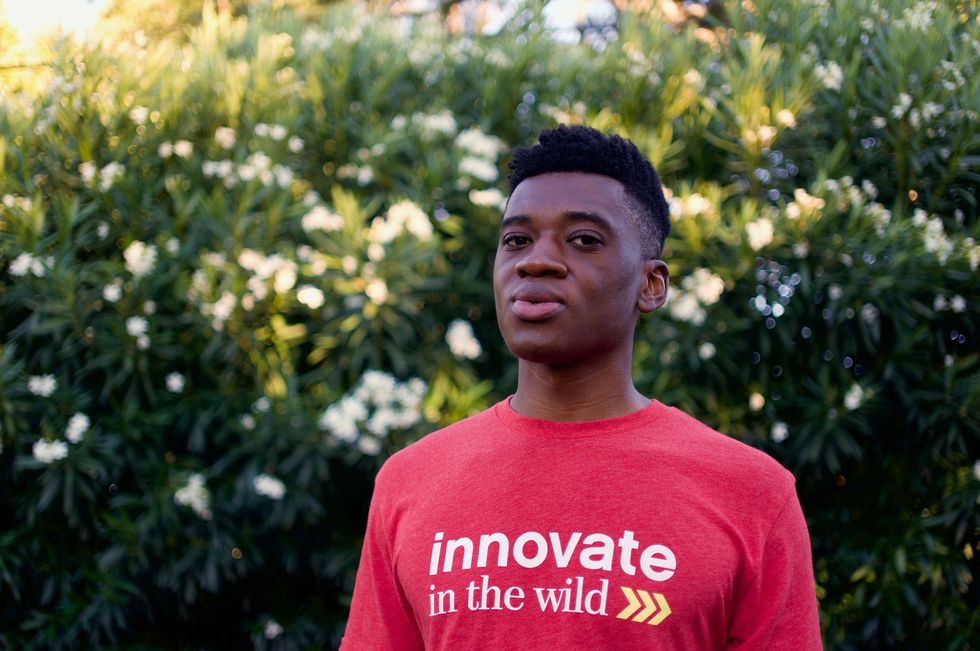#Goals: Meet the Ghanaian Computer Engineer Who Wants To Rumble with Google
We speak with Emmanuel Owusu on his role at BitClave, a startup that wants to shake up Google’s near monopoly of the online ad market.

Ghanaian-born Emmanuel Owusu is completing his doctorate at Carnegie Mellon University and is an expert in the fields of cyber security, blockchain, Internet of Things, public policy, and privacy. He is also the chief architect for BitClave, a startup that many are describing as “the Anti-Google” blockchain. BitClave is a Silicon Valley-based startup delivering decentralized search and whose stated goal is to disrupt Google’s near monopoly of the online ad market.
Take a look at our conversation below.
Kangsen Wakai for OkayAfrica: Emmanuel, it was really a pleasure meeting you at Pitch Perfect Silicon Valley this past July. Before we even address your work at BitClave, I’d like you to introduce yourself to our readers in a way that charts your journey up to this point.
Emmanuel Owusu: Thanks, Kangsen! I very much enjoyed your insightful perspectives on the project.
How would you describe BitClave to the average person?
BitClave is a search platform where users have complete control over how their data is used. Users can share data with businesses, in exchange for payment, or restrict access through flexible privacy preferences. This is possible because we have designed a blockchain-based ecosystem where businesses receive excellent customer leads without the need for expensive intermediaries.
I would not describe BitClave so much as “the Anti-Google” or even as the next disruptive search technology. We are working on a suite of foundational blockchain technologies that redefine how people engage with their favorite brands, enhance how retailers reach customers—and perhaps shake up the online ads market along the way.

At the San Francisco event where you made your pitch, you mentioned that you were part of a larger team. What is BitClave’s story, and how did you get involved with this project?
It's been very exciting to be a part of a project that started just a few months ago as a brainstorming session with CMU Professor and current CTO of BitClave, Dr. Tague, and former CSO of LG and current CEO of BitClave, Mr. Bessonov.
We were looking for solutions for user privacy and security in a world where, not just our smartphones, but everyday objects are internet addressable. We were exploring practical security solutions for the Internet of Things.
Today, this project has quickly grown into a team of more than twenty—working on a suite of disruptive technologies that better support buyer choice, business value, and product quality.
Could you speak about this idea of being “a decentralized search engine that helps you truly find what you’re looking for and get compensated for your data directly from the retailers you’re interested in?"
Sure. We are, in a sense, making a bet that prioritizing customers by building trust and transparency based on technology is good for the online advertising business.
We believe that an informed and incentivized audience makes better buying decisions—and that, in addition to being good for engagement and conversion, this inclusion in the value creation process has many positive outcomes for the businesses, brands, and communities that capitalize.
How has the response been within the tech industry to this upstart that aims to position itself as a player by challenging giants (Google, Amazon and Facebook) who many in the industry view as models? Has there been blowback? Does that even matter to your team? If so, in what ways?
It has been very encouraging to get such a positive reception from the blockchain community since we’ve moved the project out of stealth mode. Many are very excited. We are learning a lot as team through this process of engaging with the tech community so early on in product delivery.
There are those who have expressed skepticism. After all, we are not the first upstart to take on the web establishment. I’ve been most surprised to see interest from many experts and businesses who are doing quite well under the hidden ad network model. I guess there is broad agreement that there is room for improvement.
How soon should consumers expect to start using BitClave as their homepage? What are the next steps ahead for you and your team?
The next major milestones for the team include some (surprise) business partnerships as well as an alpha product release. I’d like to invite your readers to subscribe on our website to support this project and be the first to hear all major announcements.
Kangsen Feka Wakai was born in Cameroon. He is a hip-hop and jazz head who worships in the shrine of Fela Anikulapo Kuti. He is an imaginary god child of Nina Simone and Sun Ra. He is currently working on a memoir exploring father-son dynamics, family, identity, and displacement. He lives in Washington, D.C. Follow him on Twitter @KfWakai.

